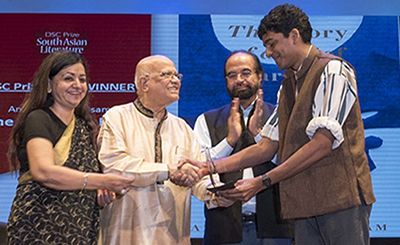
There were many symptoms along the way before he came to be: freed and lifted by ground zero.
For Dr. George Resek
He spoke, always, with a broad, wet and warming lilt – his voice like a gentle cavern: widening, opening. It took me many years to understand how that high-pitched, wide and ingratiating tone came to be acquired and inhabited. For many years, I’d assumed it was due to the meds he took, meds which, as far as I knew, contained a burly quotient of estrogen. But in truth, and after the weather of much experience, it became clear that that implied attitude of a touch-too-much breeding, with its soft rasping hint of condescension, was the frail and fallow fruit of long-borne, abyssal suffering. The implied, highly-effeminate ‘Yes, yes, yes,’ which seemed to cave-inwards when he spoke to you, as though there was nothing you might say which he hadn’t foreseen in the nerve and marrow, had become the utmost tick of his temperament. It was as though he had clutched the birthing Naught of being.
There were many symptoms along the way of course — before he came to be: freed and lifted by ground zero. The time for instance he started a panicky rant, tossing and shaking his head as though to loose deep-bowelled demons, and then jumped out of the car, leaving his driver in the lurch, mystified, terrified. Or then: how his face might burn of a sudden in plum-mauve when nothing apposite was being spoken nearby — again, as if the galling djinns speaking his mind were staging an attack invisible to the eyes of the staple, turning world. Unmanned for so long in the very quick of himself — perhaps the one truly accomplished action he performed in his life found and founded itself: at the moment of his mortality.
*
‘As young cousins, we used, like all children I suppose, to play games.’
‘Games?’
‘You know, like miniature football matches, where the ball was a fist-sized thing, the desk in the room providing the goal-posts…’
‘Yes? What else?’
‘I know what you’re hinting at, but no…’
‘Never, not a peep, not a mild suggestion?’
‘No.’ I paused, struck by a slow smile. ‘Ah yes…’
‘Yes?’
‘He told me once that there were two alternate consequences to masturbation. First, God might strike you blind; second, you’d never be able to conceive children in adult life.’
‘And when was the first time you noticed that he was, well, acting a little off?’
‘I was thirteen,’ I said, ‘visiting Beirut one Easter. His family had decamped there the year before, taking him away from the London of his childhood, his friends, and so on…’
‘Good. What happened then?’
‘Well, I distinctly recall a long browbeating conversation with him in his bedroom. He spent nearly two hours going round and round in ranting circles, telling me, with much froth and spittle, of the wailing injustice of having being ripped from “civilization.” He was angry; he was very angry with his parents…’
I carried on in this vein, peopling the large Victorian room of that clinic, with shards and glints of glimpses and half-baked memories. About an hour later, the Doctor said:
‘Good. Thank you. That will be enough for now.’
And so I left: a miracle to myself. Before being so gently enticed, I never knew I’d such a glut of memories relating to the young man in question. Which said something for the psychiatrist, I suppose; perhaps, even, for psychiatry.
*
Dr. Gregory Razor was a man of near-average height, made to seem far taller by his twig-like thinness. The two colors he inevitably wore to work were suits of a stony-grey and of a pallid thyme-hued green. His ties were, by turns, salmon-lavender or wasp-yellow. A man in his mid-fifties, an MD with much experience and distinction, he was a voracious reader — an avid dilettante in the halls of contemporary literature. Most of his patients knew this, because from the requisite hour-long sessions, a good five minutes at either end would be relegated (or promoted) to the discussion of the latest Auster, the latest Coetzee or Murakami.
‘It’s a subtle tale,’ he was wont to say; ‘yes, I like this one because there’s a nice mixture reality and sur-reality; common sense, matter-of-fact, and the fantastic. Yes, I think…’ and the small triangle of his mousy grey-haired head would twist upwards at a diagonal, pricking the words from the air, ‘it’s a subtle tale…
‘You see,’ he would often expostulate, ‘when the big Why? evaporates like so much bunkum, debunked, then that’s the cue for a profane litany, for the never-ending vertigo and splay of all the little whys? In a world where God, the Absolute, is no more a given, the meaning of a datum multiplies, geometrically — maybe even infinitely? Facts are only truly, wholly facts under the God’s-eye view. For us, mortals, facts are only, temporary — temporary stabs at truth. What we specialise in,’ and here he’d mince his middle and index fingers before his face, as though rubbing the nuance between them, ‘as limited beings, is proliferating the senses of those still-partial facts. Perspective has fruits, you know….’
Usually, he’d gloss such gnomic statements by speaking of artistic genius, like that of Kafka’s — ‘to be found somewhere between an obsessive and an instinctual personality type. Obsession, of course, being the thin edge on a spectrum ending in full-fledged paranoia, you know…One thinks of Michel Angelo, Leonardo…. An artistic genius, in the true sense, is a miniature god. He lacks nothing; which means he lacks all….’
However, as he sat there now in that large, square airy room, the walls lined by outdated khaki lintel, the teeming hothouse of narrative failed him. Trying to piece-together the different pieces of the puzzle, a puzzle presented by this young Palestinian boy who’d been struck by an acute bout of schizophrenia — well, very little seamed; or perhaps: just not enough.
‘It’s a jigsaw, my love, peopled by many colors. But the center, as yet, does not hold.’
‘You’ve spoken: you’ve interrogated all relevant parties?’
‘Of course, of course.It’s an unusual case. A lot fits the usual patterns, but there are some anomalies, and they’re vexing me.’
His wife rubbed his arm, back and forth, soothingly.
‘Well, well: sleep for now. Tomorrow you can grapple and graft again. Maybe your dreams will resolve a thing or two; or, maybe not.’ Smiling, she leant over to kiss his cheek; and then rolled over onto her side, towards sleep. Dr. Razor let out a soft sigh; and just as he reached to switch-off the side-lamp, his wife rolled back round of a sudden, and said:
‘By the way, before I forget: a young man called for you today. He said he’d met with you recently, but that in the meantime he’d recalled some “significant facts…”’
‘Significant facts? He said that?’
‘Yes, that’s how he put it. That’s how I remembered: it’s a clunky phrase.’ She then rolled onto her side again. Dr. Razor beamed at the far wall of their bedroom, a little forlorn, then let-out another soft sigh, switched off the light, and nestled down into slumber.
*
I did my best, early the next week, to inform the Doctor of some small tidbits that had floated to the surface of my mind since I’d last been interviewed by him. I spoke to him about my cousin’s lisp — how he’d never had a lisp until the onset of late adolescence. How (‘but of course, I don’t know anything about psychology, just…’) I assumed the timing of the emergence of that symptom might signify. I told him, too, about how his manners, the way he’d greet people, old or young, new or known — about how his manners became like, it seemed to me, a compulsive tic. He’d ingratiate himself with interlocutors in a way which was overtly, well, overweening. And this, to my mind, might also signify: because, I said, this stigma, too, only became pronounced and noticeable at around the same age.
‘Hmmm…’ Dr. Razor now interjected. And then, ‘hmmm…’ again. ‘Stigma: you said?’
I explained how I meant this precious appellation.
‘Redolent of a certain complex, wouldn’t you say?’
‘I’ve no idea,’ I replied. ‘You’re the expert.’
The Doctor let out a brief, windy chuckle.
‘Truth be told, you know, there is no such thing as true, bona fide “expertise” with these kinds of illnesses. It’s very much still trial-and-error….’
This made me think.
‘So you’re saying that you don’t know what you’re talking about?’
‘No. Of course not.’ He scribbled something down on his yellow notepad, which matched his tie.
I laughed, near-bellowed. He smiled — his face frittered — a tad nervously.
‘I mean, no, of course, I do know what I’m talking about. It’s just that it’s an area of psychopathology into which insight is still of course amassing. You must realize: that the human mind is perhaps the one thing inside the world that that same human mind can’t, perhaps may never, fully, grasp, comprehend….’
‘Which is why you’re so fond of reading literature?’
Dr. Razor now let out a quick sharp yelp; his face: torn-liquid by torsion. A quick agony seemed to wreck his face. He seemed to be struggling with something. And I: I felt like I’d accomplished something.
*
There are clues in every life — clues that point towards and engender endings. There are clues like stimulants and there are clues like soporifics; clues that sport and gambol and clues that lay one down to sleep in green pastures a little too green. There are clues like shepherds, there are clues like sheep; clues that save the day, clues that ruin it. There are clues to mar and smear a lifetime of accomplishment, and clues that whitewash the worst of crimes. There are clues to plume digits and runes on the board of a life, messing it — and clues that blankly raze…
To his dying day, Dr. Razor would keep remembering and rehearsing his failure with that Palestinian young man. That young man from Jaffa remained the one lacuna, the one rumpus in his on-the-whole wholly successful career.
Indeed, many years later, as I was boarding a bus, I bumped into the old chap. He was still that small triangle of a face, mousey-featured, greyer, though — but still insuperably quizzical. He reminded me of pictures I’d seen of the aged, aging Bertrand Russell. And I told him so, humorously, as we travelled along Kensington High Street in a big, bereft red bus.
‘Ah yes,’ he said. ‘Perhaps the only — or nearly-so — non-homosexual of Bloomsbury. I’ve read his Autobiography. I’m told, by people in-the-know — professional logicians — that he only ever made one real contribution to the field of Logic; but I can’t recall what it was, now. Not that I’d understand such things, anyway. I do remember, though, a passage from that book, his autobiography. He said something like that the dualism of Manicheanism was quite probable, should any supernatural proposition be so; that the foundation of reality might not be all tothe Good. Something like that, anyway. And it struck me: coming from a man so downright an atheist!’
‘You do know that before Amr passed, he’d written a novel?’
Dr. Razor’s eyes lit up for a moment, as though colored all of a sudden by watery sepia.
‘Yes,’ I said, continuing. ‘His mother and father had it posthumously published.’
‘Ah…’
‘I thought you knew. I mean: I assumed you’d have been one of the first to know.’
‘No, I’d no idea.’ At which point what seemed like a tear dripped from one of his eyes — though I can’t be sure. He seemed to be saddened, and deeply so.
‘Well, I’ve read it. All about the girl. You remember the girl?’
‘Ah yes,’ he responded, rallying now. ‘His idée fixe; his fetish. Yes, I do remember.’
‘Well, it’s not a bad read, actually.’
‘Title?’
‘You’ll be surprised perhaps. The Philosopher and the Porn-Queen.’
‘And what’s it like: generically?’
‘Ah, I thought you’d ask that: well, it’s a bit like Bulgakov’s masterpiece, plays on the same Faustian myth. And ends like it too.’
‘How so?’
‘You know: how the hero, because he’s a limited, flawed hero, only achieves “peace”, but not quite “light.”’
‘Ah…’
‘And he’s planted tableaux to do with modern Palestine. He must have done some research for that.’
‘Ah…’
‘But its ending…’
‘Yes?’
‘Well, the happy heroic couple, guy and gal — in the end, we really don’t know if they live happily ever after or not. It’s made ambiguous; as though…’
‘I see,’ the Doctor now said. ‘Well, this is my stop. I’ll be trundling along now.’
As he was taking his leave of me, clutching his small brown briefcase, I said:
‘He got the better of all of us, didn’t he?’
‘He did; of course he did.’ As he began to descend the stairs, the Doctor smiled back at me, ruefully: in valediction.
And I thought about mortality for a while.
And I thought of that liminal space where life ends, surpassed: becoming story.
Comments
*Comments will be moderated











